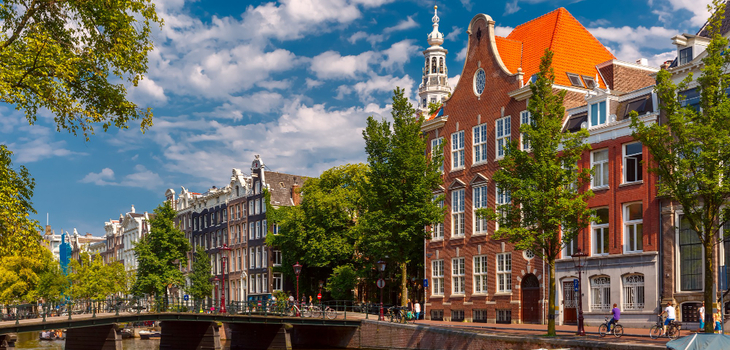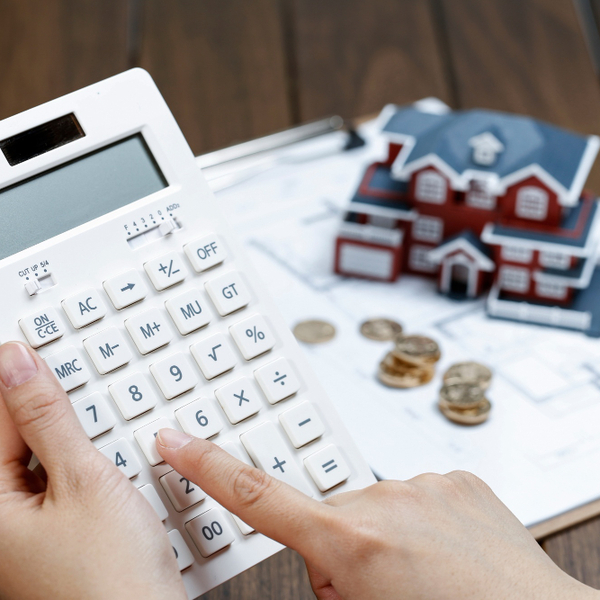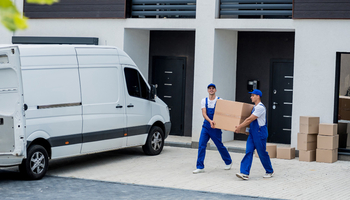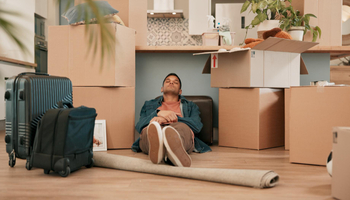Understanding the Cost of Living in the Netherlands: Essential Guide for Ex-pats

Relocating to anywhere in the world requires significant preparation. Forget the paperwork; you will need your wits about you as you sort through your personal, official, junk, and even your comfort stuff. It could get exhausting and even more so when you have the right local movers–read Moovick–helping you with the cost of relocating to the Netherlands.
And while you're preparing to move, you must consider the cost of living wherever you're moving. Today's blog covers the immediate cost of living if you decide to move to the Netherlands. From food to rent and transport, we have some tips to consider while you budget for your relocation to Holland.
So whether you are an American moving over for work or study or already used to the European landscape, this article is for you.
Hang on tight!
Budgeting tips for your move to the Netherlands
Economic reports from Expatisan place the cost of living in the Netherlands as 13th out of 68 worldwide. Other reports support that the Netherlands is one of the most expensive places to live in Europe, and its living standards are more costly than 72% of other Western European countries.
What do these mean? Whether it's a career move or embarking on your European tour, you must consider budgeting for your move if you wish to stay in the Netherlands for more than a month.
Breaking down Living expenses in the Netherlands
Below is our breakdown of the most significant aspects of living in the Netherlands and their attendant costs. Note that a lot can change, especially with the volatile global economic sector, and you might have to factor in those changes while budgeting for your move to the Netherlands.
1. Rent costs
Before the 2020s, rent typically ranged between €400 and €600 for single apartments and between €700 and €1500 for larger private-owned accommodations, depending on their sizes. In less expensive cities like Almere and Groningen, the prices are significantly lower, and students can even further cut the costs by sharing.
A family shared their rental experience in The Hague, where a decent family-sized apartment (about 72m²) sold for €1850 per month. The housing crisis in the country has made private housing even more expensive in the large cities of Holland, namely Amsterdam, Utrecht, The Hague, and Eindhoven.
However, some locations, like the Hague, have affordable housing programs for people who aren't high-income earners. The program allows families to get decent spaces at affordable prices and is worth checking out for long-term relocation plans.

2. Food
Eating in the Netherlands takes you back to the home-cooked versus eating-out debate. And here, home-cooked wins if you're working on a tight budget.
While the groceries are reasonably priced —- it's not too different than in the US–eating out, even in cheap locations, can cost almost €15, and that's without a drink. Better quality food comes at a higher price, and coffee lovers might even consider getting espresso machines and making their coffees at home–a cup is about €4, which could add up quickly.
The trend with groceries is that locally produced stuff costs way less than imported foodstuff, which goes for most locations worldwide. Cheese and most dairy products are cheap in the Netherlands, and you can expect fruits to be more expensive. The trick is to get grocery stores with decent promotions and customer loyalty plans. That way, your shopping comes at considerably cheaper rates.

A single person can spend about €190 on groceries monthly, depending on the store and quantity of groceries they buy. Students can get meal discounts at specific restaurants, and their average monthly cost of feeding could be relatively less, at about €170.
4. Utilities
The rise in gas costs has affected utility bills in the Netherlands in the past two years. From cooking to heating the house, your gas bills take a significant chunk of your utility bills.
Depending on your rental arrangements, you can pay a predetermined fee for gas and electricity. After a year, the agency calculates your actual usage and refunds you if you use less than you paid. Of course, if you use more than your predetermined fee can cover, you'd be charged to the excess.
Water and internet are relatively cheap in the less expensive cities. You can get by as low as €18 for water and €30 for cable internet.
5. Transportation
The Netherlands has a well-developed public transit network with many options. Bicycles are a popular choice among students, and you'll find bike lanes in every city for bikers.
Considering your other living costs, getting a new bicycle might be quite a stretch. Many go for used ones, which cost between €50 and €150, compared with the new variants that range between €250 and €500.
Trains are a staple for intercity transport, and depending on the destination, typical train tickets cost about €5. Buses and trams are more used within a city, and tickets are about €2 for buses and €3 - €13 for trams.
Cab fares could be tricky, but most start at €7.5. Ferries are another budget option for travelling between port cities, especially for cyclists. Cyclists get free rides on ferries, while the regular ferry tickets cost €1 - €2.
To Wrap It Up
Of course, there's still other stuff to consider, like movie tickets and health insurance, but the list above covers your essential living expenses in the Netherlands. The government mandates health insurance so that you can fix that along with your relocation paperwork, and entertainment budgets are pretty subjective.
You can spend around €1200 monthly on your expenses in the Netherlands, while working-class ex-pats can expand that to about €1600 - €1800, depending on the city and rental costs.
Popular Articles

Logistics Unveiled: A Comprehensive Guide to Planning Your Internat...

Fear of Moving Out: A Comprehensive Guide

Places to Get Moving Boxes for Your Move in Germany and Netherlands

Benefits Of Hiring Local Movers For Your Next Move

Stress-Free Home Moving: How Moovick AI Simplifies Getting an Estim...

The True Cost of a Local Move: Factors to Consider

